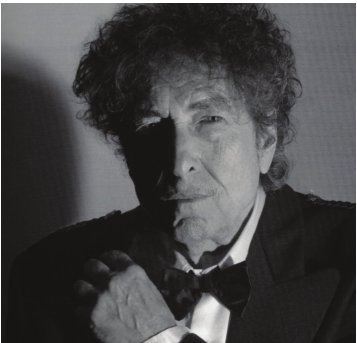This new, occasional column is devoted to the Great American Songbook, which comprises the best of popular vocal music from the last century until rock ‘n’ roll took over. Twice a month or so, I’ll look at a recording or two, either new releases by current artists or remastered versions of the works of legendary singers and musicians.
While this music has always found expression in different genres, particularly jazz, I’ll focus on recordings that respect the original marriage of words and music that have made standards of these songs. That doesn’t mean a ballad can’t swing or an up-tempo melody can’t be slowed down. But respect must be paid.
Which it certainly is in “Triplicate,” the latest release from, of all people, Bob Dylan. There’s a message here about the greatness of the material whenever Dylan sings other people's words. After all, he did win a Nobel Prize for literature for his own lyrics.
“Triplicate” is his third venture into standards. The first two were odes to Frank Sinatra, released surrounding Ol’ Blue Eyes’ 100th birthday two years ago. This time, Dylan is paying homage to the genre itself and no particular artist.
“Triplicate,” which in the vinyl version comprises three records of 10 songs each, emphasizes ballads. And Dylan, who does all the vocals alone, delivers them with heart but certainly no schmaltz. And clear enunciation. Yes, Dylan, right up there with Brando in the Mumblers Hall of Fame, gives a lesson here in good diction.
What comes through is that Dylan, who is 75, has lived, loved and lost enough to understand this music. From the lightly swinging boy-loses-girl opener, “I Guess I’ll Have to Change my Plan,” by Dietz and Schwartz — with the wonderful lines “My boiling point is much too low/For me to try to be a fly Lothario” — to the dirge-like Kern-Hammerstein closer six vinyl sides later, “Why Was I Born?” (“Why do I cry/ You never hear me”), Dylan’s weathered voice evokes each entry’s due with no overstatement. Nor does he go to the other extreme typical of Willie Nelson’s fading versions of the same songs. Dylan is stage front and fully involved.
Dylan’s two Sinatra albums, “Fallen Angels” and “Shadows in the Night,” offer far more interesting, fuller orchestrations, and for the uninitiated, I encourage you to start with one of them for that reason. But I have no complaints about the steel strings, bass and drum work — no horns or violins this time — on “Triplicate.” There’s not a jarring moment.
The recording quality of this, Dylan’s 38th studio recording and his first three-record set, is magnificent. Kudus to Columbia (and is there any other artist today who has recorded with the same company for 55 years?) for its mastering and pressing on 180-gram vinyl.
If I have a kvetch, it’s that for nearly $50 retail, the packaging could not be much more bare bones. The three records have to be stuffed into one sleeve, and the liner notes don’t give you much more than the order of songs on each side. There’s a deluxe edition that may be worth the additional $20, if only to get more information about the songs.
Still, there are two delicious photos of Dylan. One is a color photo of him casually dressed and leaning against a souped-up ‘60s convertible.
The other is a black and white closeup of him in a tux and jeweled cuff links, his face as weathered as his voice. His expression is typical inscrutable Dylan, befitting a man who only lets you in through his art. And though these are not his words or music, “Triplicate” brings you closer to understanding one of our great American treasures.
Support City Pulse - Donate Today!
Comments
No comments on this item Please log in to comment by clicking here